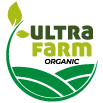
Leave a Healthy Life to Future Generations with Respect for Nature and Soil!
What is Sustainability?
Sustainability involves fulfilling present needs without exhausting resources for future generations. Beyond its primary element of natural resources, sustainability also encompasses social, community, and economic resources. To achieve sustainability, it’s crucial to maintain the uninterrupted and undeteriorated operation of any sustainable natural system. This means avoiding excessive use or overburdening the system’s core life-dependent resources.
What is Sustainability in Agriculture?
Sustainable agriculture involves establishing a system that leverages environmentally-friendly technology while preserving natural resources for the long term. It necessitates the use of techniques or materials that retain their natural characteristics. In this context, organic farming techniques play a pivotal role. These techniques meet quality, health, and environmental standards by avoiding unnatural inputs such as pesticides and synthetic fertilizers.
Key organic farming methods that safeguard soil health include efficient water management for conservation, the use of biological control methods instead of chemical fertilizers and pesticides, and adapting agricultural practices to mitigate the impacts of global climate change.
What are the Benefits of Sustainable Agriculture?
There is only one product that does all of these:
Ultrafarm solid and liquid organic fertilizer obtained from pure sheep wool.
40% of global crop production is lost to pests and diseases ( FAO, 2021 ). At least $80 billion is lost annually due to plant pathogenic nematodes ( Palomares-Rius et al., 2021 ). Considering the increasing population of our planet ( United Nations, 2019 ) and the decline of fertile lands due to non-agricultural land use and climate change ( Borrelli et al., 2020 ), preventing these crop losses due to pests is of great importance.
Sustainably reducing pests and diseases in economically important crops can help improve the quality of life of farmers, businesses, and consumers while respecting the environment.
Chemical nematicides are highly toxic to both soil and human health ( Abawi and Widmer, 2000 ). Methyl Bromide (MeBr), a soil fumigant, is used as a nematicide worldwide. Since MeBr causes depletion of the ozone layer, its use has gradually been reduced and is now completely banned ( Nahed et al., 2017 ). In 1999, the EPA (Environmental Protection Agency) phased out the use of MeBr except for critical permitted uses accepted in the Montreal Protocol ( EPA, 2022 ). The use of MeBr was canceled in the EU in 2010 ( CEE, 2018 ). Similarly, chemical nematicides such as Nemacur®️ (composed of fenemiphos) and Carbofuran are also banned for crops. The use of Dichloropropene, a non-specific soil fumigant such as MeBr (with or without chloropicrin), is restricted to non-crop fields ( MAPA, 2022 ). As an alternative to chemical control for nematode management, alternative and effective biological control measures such as biological control substances or plant protection compounds of biological origin are urgently needed, as well as improved agricultural practices that will minimize crop losses ( Sikder and Vestergård, 2020 ).
Power from Nature, Life to the Earth...

